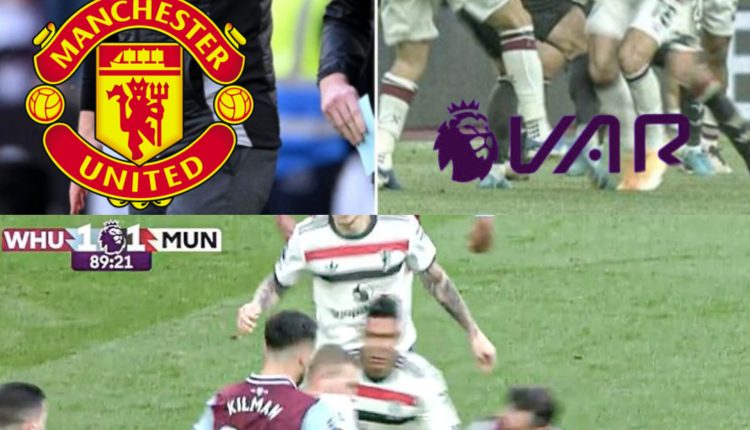The decision to award West Ham a stoppage-time penalty against Manchester United has ignited a wave of controversy, drawing sharp criticism from former Tottenham player Jamie O’Hara. This dramatic late penalty allowed West Ham to secure a 2-1 victory at the London Stadium, but the win did not come without heated debate, especially surrounding the officiating.
The game was tense from start to finish, with Manchester United controlling much of the first half and producing several clear-cut chances. Yet, despite their dominance, United found themselves trailing when Crysencio Summerville netted the opening goal for West Ham. Erik ten Hag’s side managed to fight back, with Casemiro scoring a crucial equalizer to put the teams back on level terms. However, as the clock ticked toward the final whistle, a pivotal moment unfolded.
In the closing minutes, referee David Coote was called over to review an incident involving United’s Matthijs de Ligt and West Ham’s Danny Ings. The Dutch defender appeared to collide with Ings in the box, and after an on-field review, Coote overturned his initial judgment and awarded West Ham a penalty. Jarrod Bowen then calmly converted the spot-kick, sealing the victory for Julen Lopetegui’s team. The decision to award the penalty became the center of a post-match firestorm.
O’Hara, visibly frustrated, expressed his views on Sky Sports, stating that the incident lacked sufficient grounds for a penalty. “The ball bounces up, and it’s a 50/50 situation,” he argued, emphasizing that both players seemed cautious and that Ings was already in the process of going down before contact was made. O’Hara felt that Ings was seeking a penalty rather than genuinely challenging for the ball, and he questioned the referee’s choice to overturn the original call. “There’s not enough contact to justify this as a foul,” he continued, “and it’s not clear and obvious. This sort of call changes the game.”
For O’Hara, this situation was another example of VAR intervening in situations that do not meet the threshold of a “clear and obvious error,” a standard the system was intended to uphold. He expressed concern that VAR’s growing influence is reshaping the nature of the game, as referees now feel compelled to reverse decisions on minimal contact. “The referee saw it and didn’t call it initially. So, why are we going back and re-evaluating something that isn’t an obvious mistake?” he questioned.
Erik ten Hag echoed these sentiments in his post-match interview with BBC Sport, indicating his frustration with the decision. Ten Hag emphasized that VAR’s involvement should be limited to correcting significant errors made by the on-field official, not marginal calls. “There was an agreement that VAR would only intervene in clear and obvious errors,” he said, hinting that the situation with de Ligt and Ings didn’t meet that criterion. The United manager’s disappointment was evident, as he questioned the consistency of officiating and VAR’s role in influencing game outcomes.
The contentious decision has since sparked considerable debate, with many fans and analysts divided over whether the call was justified. For some, the incident highlights the ongoing issues with VAR’s role in football, as O’Hara and Ten Hag’s comments have underscored concerns that the technology might be distorting the game.
